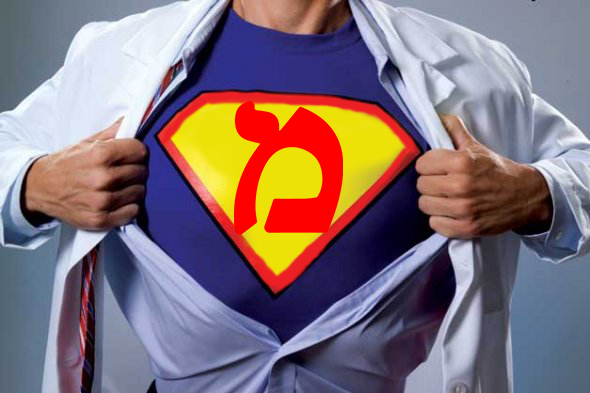As I hugged his wife, Aunt Shelly, and expressed my condolences, she only had one thing to say. “Be a good doctor, Brian. Do it for him.” From all of the tributes of the day, these are the words that resonated most.
Uncle Marc was a cardiologist, 40 years deep into his career. The model of health, he would exercise daily, eat an AHA-friendly well-balanced diet, and actively destress with the help of a nightly Yankee game. Sadly, as we see too often, despite his dogged efforts at maximizing his healthspan and longevity, he suddenly had to leave this world. It was clear from the more than two hundred patients, students, friends, and colleagues in attendance at his funeral, that Uncle Marc was indeed a “good doctor.”
Ironically, this brilliant cardiologist was afflicted with systemic amyloidosis, a disease which ravaged his heart function. Instead of climbing stairs, he was rapidly ascending the stages of the NYHA Heart Failure Scale. He ultimately succumbed to a complication of this rare and ruthless disease.
I had to reflect on what Aunt Shelly was asking of me. What did it mean to be a good doctor? Despite the ever-present focus on board scores, class ranks, publications, and academic prestige, it was clear that she wasn’t talking about any of this.
Being a good doctor meant focusing on the humanistic and empathetic sides of medicine. Having the background knowledge of medicine and decision making skills were obviously requisite, but what she was really asking me was to be wonderful to all of my patients.
The words spoken at his service extolled Marc’s greatness to all those present. Eulogies given by his partners described him as “the doctor they aspired to be.” Despite their best efforts, they could not match his perfectly aligned moral compass, or find a way to connect with patients quite like he could. “Whenever we had a clinical question, we turned to Marc. And in 40 years, he was never wrong.” Given the challenges of medical decision-making, the audience knew that this couldn’t be totally true, but everyone was willing to suspend disbelief, and hold him up on this pedestal of perfection.
Aunt Shelly’s simple request was for me not to simply be a good doctor, but to strive to be a true mensch. For the uninitiated, a mensch is a person of integrity and honor. In The Joys of Yiddish, author Leo Roston describes a mensch as “someone to admire and emulate, someone of noble character.” If you looked up “mensch” in the dictionary, you’d probably find a picture of him, wearing a slight grin that was both welcoming and reassuring.
Marc spent his life being just that, a mensch among mensches. A wonderful and loving father to his children. The go-to member in our large extended family for anyone who had the biggest or smallest of medical questions. A mentor to students and young physicians, and the bedrock of his cardiology practice, he exuded compassion towards everyone in his life. Despite the accolades, Marc exemplified a sense of humility; he would never tell you how smart he really was, but somehow you just knew.
Sadly, the prospect of being wonderful and heartfelt towards every patient can fall out of the forefront of our minds. When balancing 20 ICU patients overnight, some of whom are actively deteriorating, we can forget to give families and patients the best of ourselves, and the time and humanism they deserve. The more critical patients and situations create a cloud of intensity that we are forced to cut through in order to let that interpersonal kindness and empathy find its way to patients. Sometimes the prospect is an impossibility. Even though I said I would, I cannot sit down with you to explain everything in detail, because your neighbor needs to be intubated. When one’s limited brainpower needs to work through quick differentials and treatments, especially at early stages of our careers, humanism sometimes is forced to take a backseat.
However, if we keep that simple mantra at the forefront, “Be a good doctor,” the pieces should fall into place. Remember that your hospitalized patient is almost certainly having a worse day than you are. Despite the stress, the toil, and the uncertainty of the future of medicine, never forget that everything we do is for the benefit of making Mr. Peterson or Ms. Carr get better and handle the predicament that they are in.
Being a good doctor is not about throughput or efficiency. It’s not about getting home early, or showing off on rounds. The central thread of everything that you do as a doctor, in every phase of your training and career, should revolve around helping your patients to get better, and doing so in a way that empowers them, maintains their dignity, and puts them above all of our other desires.
Thank you, Uncle Marc, for reminding me of that lesson. I will keep it close to me throughout my career.
This article was originally published by Doximity.





